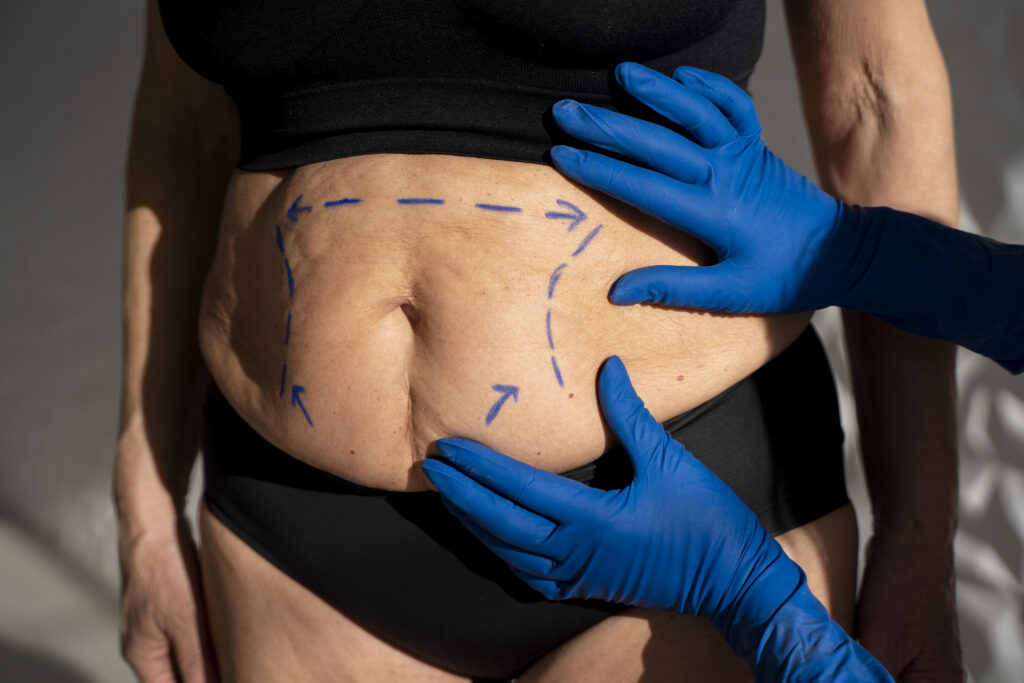Gastric Sleeve in Turkey: An Amazing 2025 Success Guide
A gastric sleeve in Turkey is more than a medical procedure; it is a life-transforming journey towards health, confidence, and a new beginning. For individuals struggling with obesity, bariatric surgery offers a powerful tool for achieving significant and sustainable weight loss. Turkey has rightfully earned its place as a global center of excellence in this field, combining world-class surgeons, advanced technology, and compassionate care. At Medicaltour.io, we are your dedicated partners, committed to guiding you safely and seamlessly through every step of this amazing transformation.
Why is Turkey the World’s Choice for Bariatric Surgery?
The decision to undergo weight loss surgery is significant, and choosing the right location is paramount. Turkey’s leading position is built on a solid foundation of trust, quality, and proven results.
Firstly, Turkish hospitals feature some of the most advanced surgical technology available. Procedures are predominantly performed laparoscopically (keyhole surgery), and many top centers offer robotic-assisted surgery. This minimally invasive approach means smaller incisions, less pain, reduced risk of complications, and a much faster recovery. The quality of these institutions is often validated by prestigious international accreditations, such as from the Joint Commission International (JCI), which ensures the highest standards of patient safety.
Secondly, Turkish bariatric surgeons are globally renowned for their vast experience. They perform thousands of procedures each year, giving them a level of expertise that is difficult to find elsewhere. Many are esteemed members of global organizations like the International Federation for the Surgery of Obesity and Metabolic Disorders (IFSO). This high volume of cases ensures they are proficient in handling both straightforward and complex patient needs with exceptional skill.

Understanding Your Bariatric Surgery Options
The goal of bariatric surgery is to help you lose weight by restricting food intake and, in some cases, altering the digestive process. The best procedure for you will be determined by your surgeon based on your BMI, health conditions, and personal goals.
Gastric Sleeve (Sleeve Gastrectomy)
This is the most popular weight loss surgery worldwide. During this procedure, the surgeon removes approximately 80% of the stomach, leaving behind a small, tube-shaped “sleeve.” This significantly reduces the stomach’s capacity, making you feel full with smaller amounts of food. It also removes the primary part of the stomach that produces ghrelin, the “hunger hormone,” which helps to reduce your appetite.
Gastric Bypass (Roux-en-Y)
The gastric bypass is another highly effective procedure. It involves creating a small stomach pouch and then re-routing a section of the small intestine to connect directly to this pouch. This method works by both restricting food intake and reducing the absorption of calories and nutrients, making it particularly effective for patients with type 2 diabetes.
Non-Surgical Gastric Balloon
For individuals who may not qualify for or desire surgery, the gastric balloon is an excellent non-invasive option. A soft, saline-filled balloon is placed in the stomach endoscopically (without incisions) and left for 6-12 months. It works by taking up space in the stomach, promoting a feeling of fullness and helping with portion control.

Your Transformative Journey with Medicaltour.io
We’ve meticulously designed a supportive, all-inclusive process to eliminate stress and allow you to focus on your health. Here is the seamless experience you can expect when you book your weight loss surgery through us:
- Free, Confidential Consultation: Your journey begins with a complimentary online consultation with a top bariatric surgeon. You’ll discuss your health history and goals, and the surgeon will provide a professional recommendation for the most suitable procedure for you.
- Comprehensive All-Inclusive Package: Once you decide to move forward, we handle everything. Your package will include the surgery, all pre-op tests, hospital stay, luxury hotel accommodation, and all VIP airport-hotel-clinic transfers.
- Arrival and Pre-Operative Care: You will be personally greeted at the airport and chauffeured to your hotel. The next day, you’ll be taken to the hospital for a full health screening and an in-person consultation with your surgeon and dietician.
- The Procedure and Hospital Stay: Your surgery will be performed in a JCI-accredited hospital. You’ll typically stay in the hospital for 2-3 nights under the attentive care of the medical team, who will manage your initial recovery.
- Post-Operative Support: Before discharge, you’ll receive a comprehensive dietary plan and all necessary medications. After moving to your hotel, you will have follow-up checks before being cleared for your flight home. Many of these Ministry of Health authorized healthcare providers offer excellent post-op support.
- Long-Term Follow-Up: Your journey doesn’t end when you fly home. We ensure you have access to long-term follow-up support from your surgical team and dieticians to help you achieve and maintain your goal weight. You can learn more about Turkey’s health system on portals like HealthTürkiye.

Cost vs. Quality: The Unbeatable Turkish Value
The financial barrier is one of the biggest challenges for patients seeking bariatric surgery. This is where Turkey provides an incredible solution without compromising on quality. In the United States, a gastric sleeve surgery can cost between $15,000 and $25,000. In the UK, private surgery can cost £9,000 to £15,000. In stark contrast, a fully inclusive gastric sleeve in Turkey package, including surgery, hotel, and transfers, typically costs between €3,000 and €5,000. This saving of up to 70% is due to the country’s economic advantages, not a reduction in the quality of medical equipment, surgeon expertise, or hospital standards.
Compare Weight Loss & Bariatric Surgery prices in Turkey by clicking here!
Frequently Asked Questions (FAQ)
Who is a good candidate for bariatric surgery?
Generally, candidates have a Body Mass Index (BMI) of 40 or higher, or a BMI of 35-39.9 with obesity-related health conditions like type 2 diabetes, high blood pressure, or sleep apnea. A full medical evaluation is required to determine suitability.
How much weight can I expect to lose?
With gastric sleeve surgery, patients can typically expect to lose 60-70% of their excess body weight within the first 12-18 months. Gastric bypass can lead to slightly more. Success is highly dependent on adhering to the post-operative diet and lifestyle changes.
How long is the recovery period?
You will be up and walking within hours of the surgery. Most patients can return to a desk job and light activities within 2-3 weeks. Strenuous activity and heavy lifting should be avoided for about 4-6 weeks.
Is weight loss surgery in Turkey safe?
Yes. When performed in a high-volume, accredited hospital by an experienced surgeon, bariatric surgery is very safe. The risks are comparable to other major surgeries like a gallbladder removal. By choosing a provider through a vetted platform like Medicaltour.io, you ensure you are in the hands of the best providers in the country.
How can I be sure of the quality of the hospitals?
We partner exclusively with hospitals holding the highest international standards, including JCI (Joint Commission International) accreditation. This guarantees a level of quality, safety, and patient care that is on par with the best hospitals in the world.
Glossary of Bariatric Terms
BMI (Body Mass Index): A measure of body fat based on height and weight that is used to categorize individuals as underweight, normal weight, overweight, or obese. Laparoscopic Surgery: A minimally invasive surgical technique that uses several small incisions and a camera (laparoscope) to view the abdominal cavity. Ghrelin: A hormone primarily produced in the stomach, often called the “hunger hormone” because it stimulates appetite. Comorbidity: The presence of one or more additional health conditions co-occurring with a primary condition (e.g., type 2 diabetes co-occurring with obesity). Sleeve Gastrectomy: The medical term for the gastric sleeve procedure, where a large portion of the stomach is surgically removed.
Glossary
| Term | Short Explanation |
|---|---|
| Colonoscopy | Endoscopic examination of the large intestine to detect abnormalities. |
| Gastroscopy (Upper Endoscopy) | Endoscopic procedure to examine the esophagus, stomach, and duodenum. |
| Endoscopic Ultrasound (EUS) | Combines endoscopy and ultrasound to get detailed digestive tract images. |
| Capsule Endoscopy | Swallowing a small camera capsule to take images of the digestive tract. |
| ERCP (Endoscopic Retrograde Cholangiopancreatography) | Endoscopic technique to examine and treat bile and pancreatic ducts. |
| Sigmoidoscopy | Endoscopic examination of the rectum and lower colon. |
| Polypectomy | Removal of polyps from the digestive tract. |
| Biopsy | Removal of a small tissue sample for diagnostic purposes. |
| GERD (Gastroesophageal Reflux Disease) | Chronic acid reflux causing heartburn and irritation. |
| Barrett’s Esophagus | Precancerous changes in the esophagus lining due to acid reflux. |
| Peptic Ulcer Disease | Open sores that develop in the stomach or upper intestine lining. |
| IBD (Inflammatory Bowel Disease) | Chronic inflammation of the digestive tract, including Crohn’s and ulcerative colitis. |
| IBS (Irritable Bowel Syndrome) | Functional digestive disorder causing abdominal discomfort and changes in bowel habits. |
| H. pylori Infection | Bacterial infection linked to ulcers and stomach cancer. |
| Celiac Disease | Autoimmune reaction to gluten damaging the small intestine. |
| Liver Function Test | Blood tests to evaluate liver health. |
| Hepatitis Screening | Tests to detect viral hepatitis infections. |
| Fatty Liver Disease Management | Treatment and lifestyle changes to reduce liver fat. |
| Endoscopic Mucosal Resection (EMR) | Removal of abnormal tissues from the digestive tract lining. |
| Endoscopic Submucosal Dissection (ESD) | Advanced endoscopic removal of larger lesions in the digestive tract. |
| Gallbladder Removal (Cholecystectomy) | Surgical removal of the gallbladder, often due to gallstones. |
| Pancreatic Surgery | Surgical treatment for tumors or diseases of the pancreas. |
| Whipple Procedure | Complex surgery for pancreatic or bile duct cancer. |
| Colorectal Cancer Screening | Tests and procedures to detect colon or rectal cancer early. |
| Fecal Occult Blood Test (FOBT) | Test for hidden blood in stool, used in cancer screening. |
| Paracentesis | Removal of excess fluid from the abdominal cavity. |
| Gastric Balloon | Non-surgical weight loss method using an inflatable balloon in the stomach. |
| Gastrostomy | Surgical creation of an opening into the stomach for feeding. |
| Esophageal Dilation | Procedure to widen a narrowed esophagus. |
| Small Bowel Resection | Surgical removal of part of the small intestine. |


